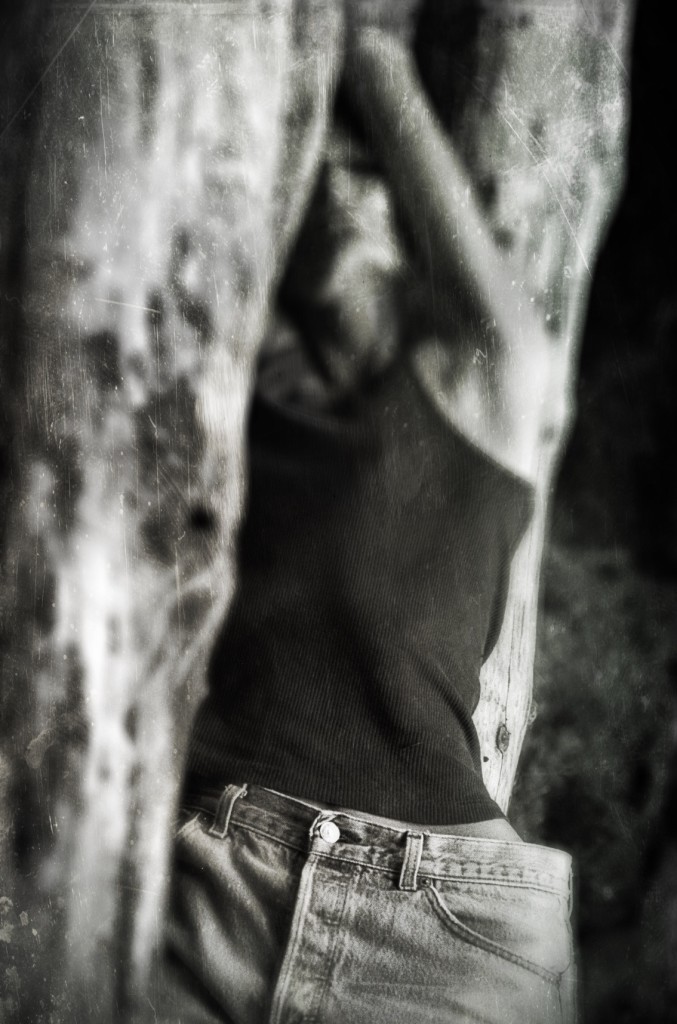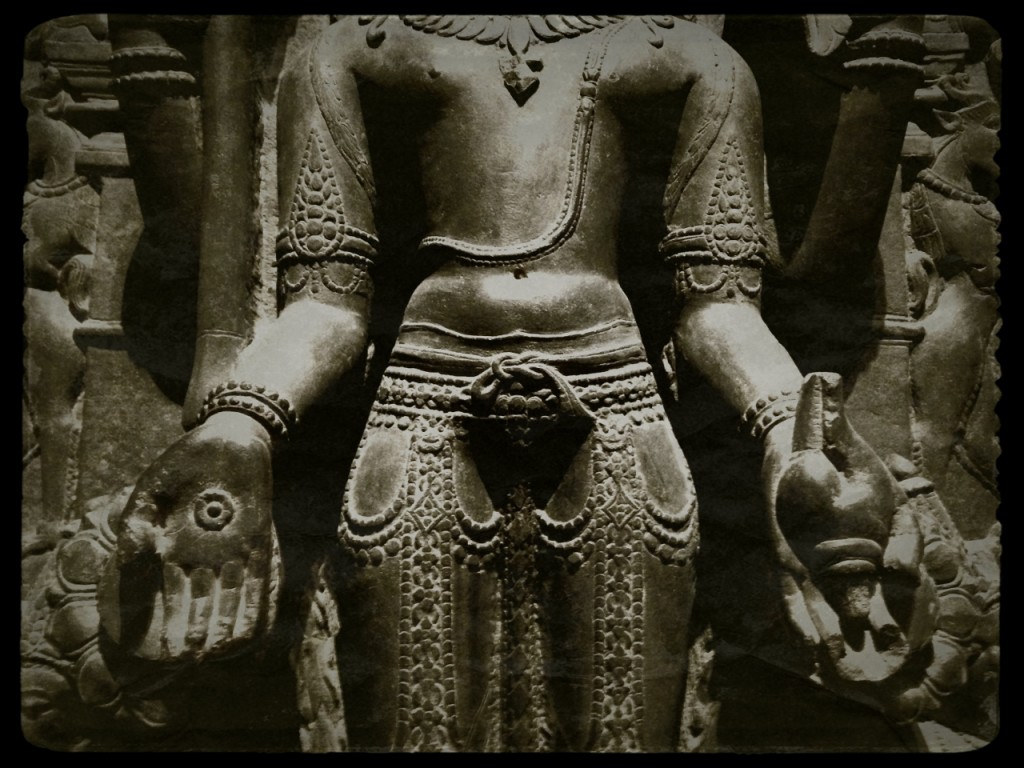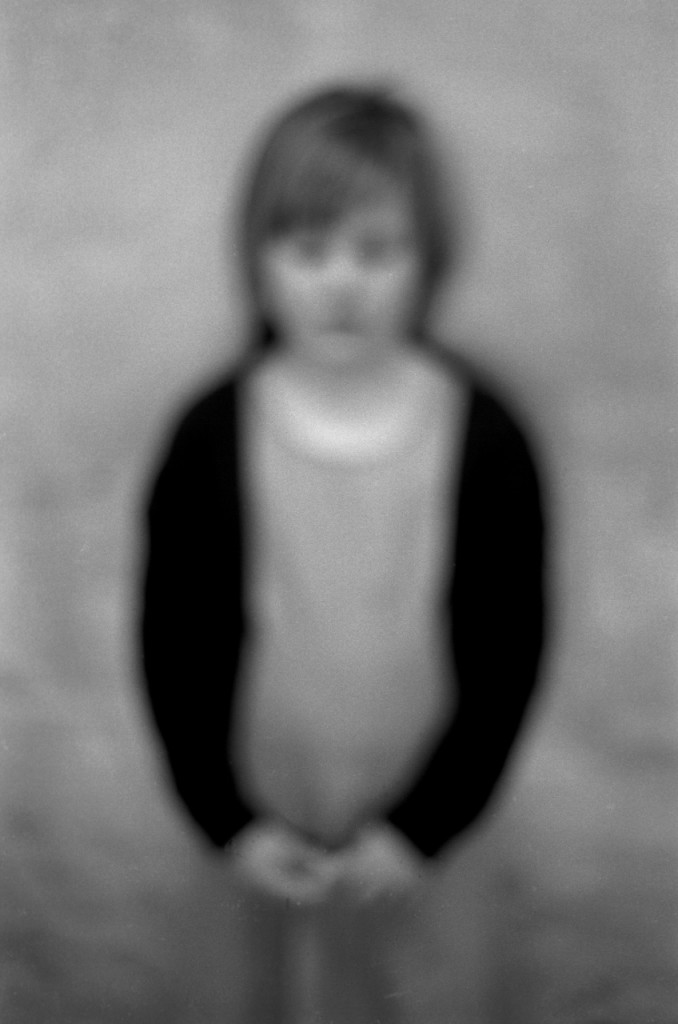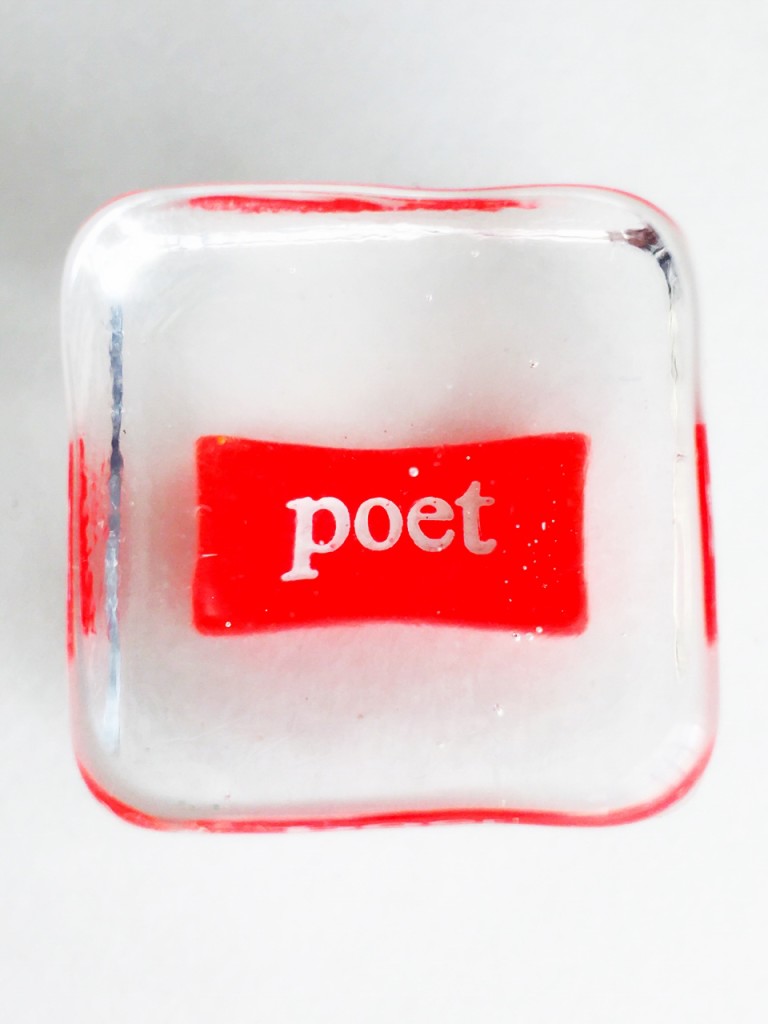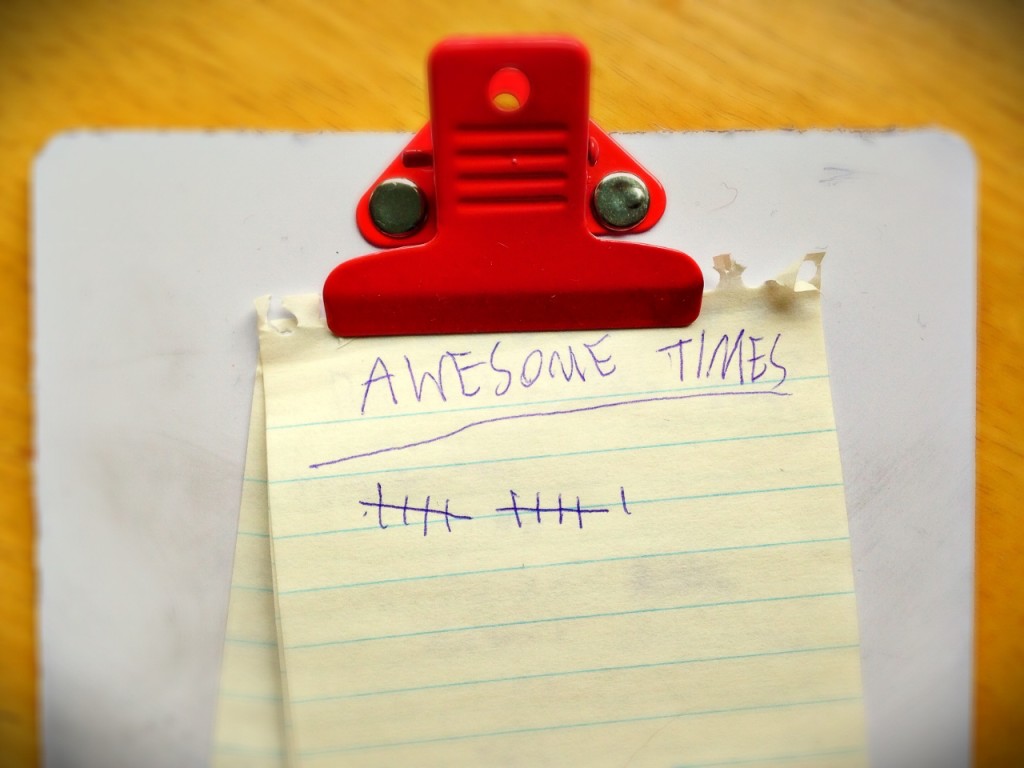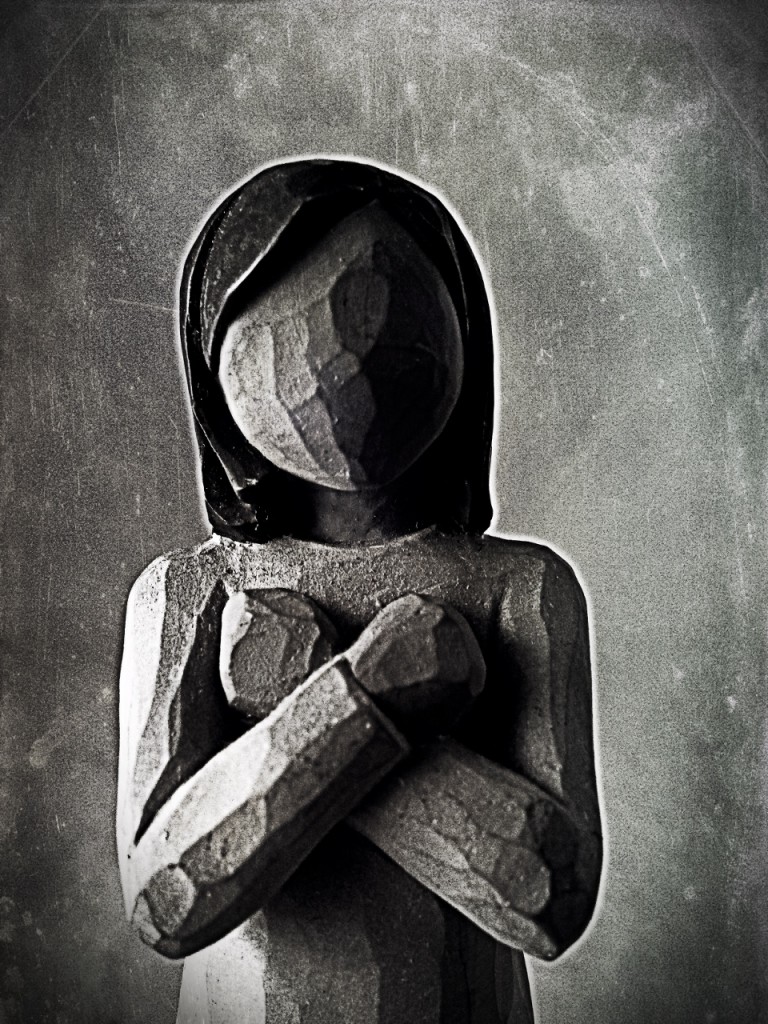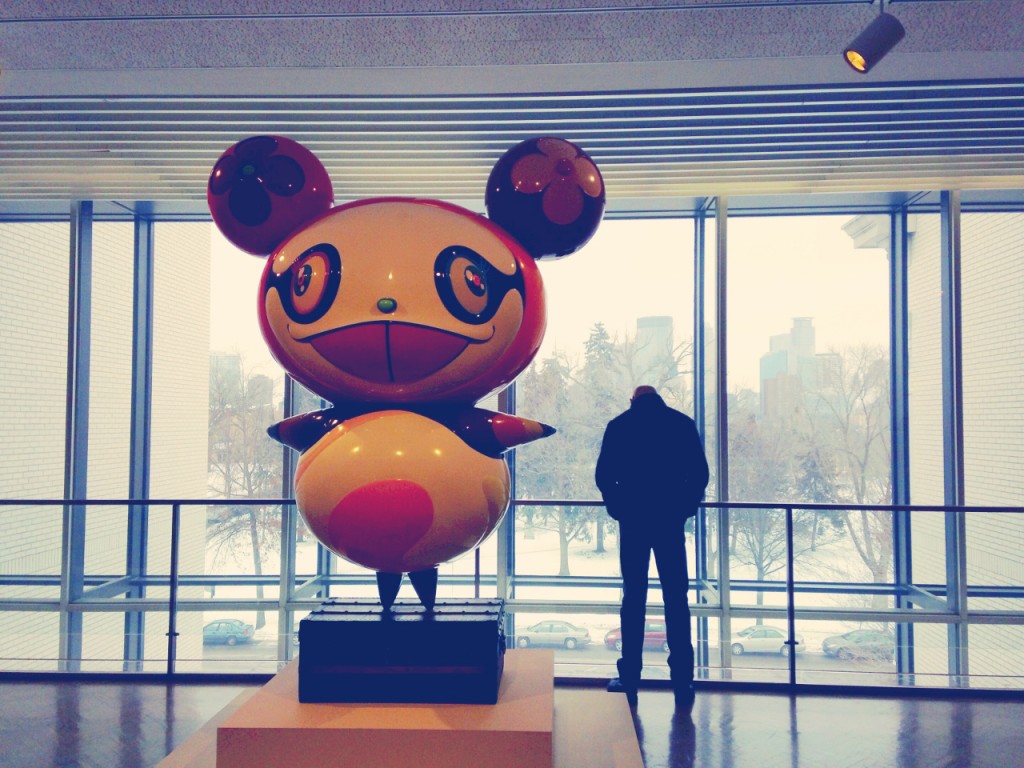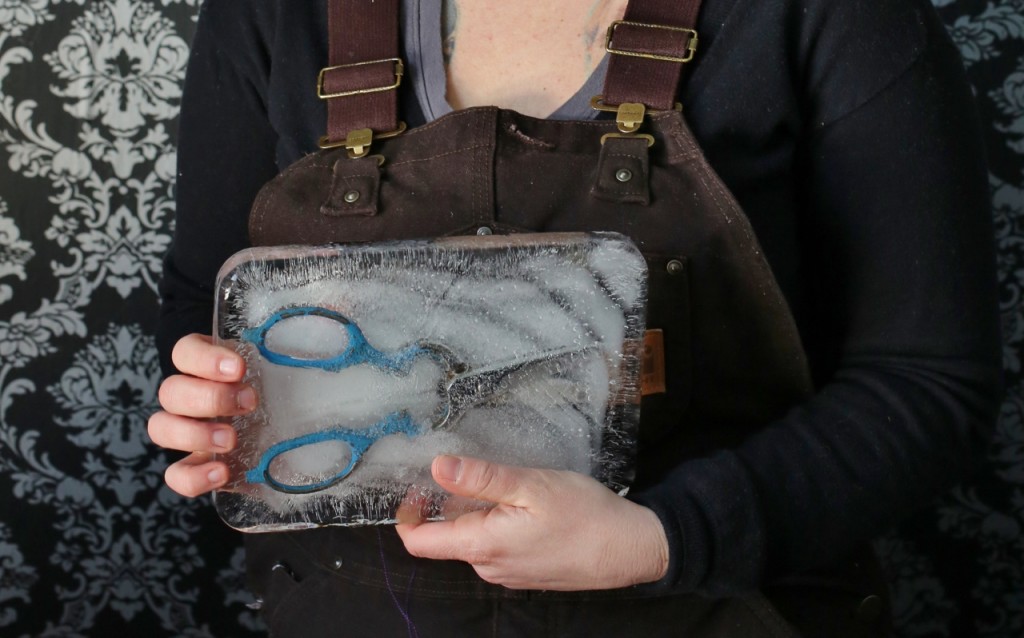
By Craig Reinbold
Through our mid-twenties, this friend of mine, Tom, hosted an annual party at his family’s cabin in rural Wisconsin, and that year—the last year he invited us all there, incidentally—we were the last two to crash. The dawn was coming up quick, and we were watching the blackness outside morph into gray, into a fog that would settle on his family’s forty acres and on the half-mile gravel drive leading up to the house. I called it a cabin, but it was definitely a house. This friend of mine, his parents had bought this land and built the place as a retirement escape. Then his father had died, suddenly—I think he was fifty-nine, just like that, an aneurysm—and his mother had settled instead into a condo in the city.
Tom and I were in a sunroom off the kitchen, sort of a three-season porch thing, with screened walls and wicker furniture. The air was muggy and cool, and the sweet smell of wet grass had settled on everything. He was slouched in a chair. I was sprawled across the love seat, busy pining for a girl asleep upstairs. Pining, because I was dating someone else, though I was already in love with that girl up in the loft, and I didn’t know what to do. Should I leave my girlfriend and pursue—
No, he said. Probably wouldn’t work out anyway. Why risk it?
Even then I recognized this was terrible advice, but he was himself newly single, frustrated, and lonely, with no patience for these woes. And in that moment, he didn’t want me to go. He asked if I would stay with him, if I’d sleep there with him. Sure, of course I would. We’d been friends for a decade. I’d slept next to him many times. And then he asked—with a pause, mid-beat—would I hold him? Would I hold him, just the once, and just that, out of compassion if not desire?
I knew Tommy was in a rough spot then. I’d never seen him so vulnerable, and isn’t that what we all want, what we all need, someone to just be with us, like that, through the worst parts? Still, I said No. May as well have said, Will never happen.
I did sleep there, but on the floor. I was always out of reach but never more than just then. He was looking for a little compassion, a little tenderness. And I said no. As close as we are, everything we’ve been through together, this is as close as we’ll ever be. An arm’s length away. That space between us, he couldn’t close it, and I wouldn’t. And why not?
Why didn’t I hold him, just for a minute, like he’d asked? Maybe because I was still telling myself we were just friends like any other, and because even then, especially then, I knew this wasn’t exactly true.
•••
By the time I was eighteen, I’d invested a lot of thought into my sexuality. Not so much because Tom, my closest friend at the time, was gay, but because he had spent the previous year—since coming out to me, and to me alone—trying to convince me I was gay, too. Because he wanted to get it on? Because he wanted company? Probably a bit of both, and either way I was familiar with these impulses. I could relate. That said, understanding that my masculine self is a construction of sorts, that gender is a learned performance, and that sexuality can be a fluid, evolving thing, my own hetero-ness has always seemed inherent to me.
I am of slightly below-average height. I have flat feet and a weird space between my first and second toe. I inherited—from my mother—a genetic blood-clotting disorder called Factor V Leiden thrombophilia, for which I take an aspirin a day. My eyes are hazel. And at eighteen, the image of Brad Pitt in his Fight Club prime opening a door wearing nothing but rubber gloves only ever inspired in me a competing mix of admiration and envy, while a mere glimpse of the thigh of the girl who sat next to me in Economics roused erections like flagpoles.
So my sexuality was never really a question, not for me, but when we were teenagers—sixteen, seventeen—Tommy did what he could to convince me otherwise, mostly by telling me I was gay, over and over, all the time, mistaking my denials for Denial. Eventually the rest of our friends picked this up too and started telling me I was gay, groping my chest and asking if I was turned on and responding to my firm nos with Hey man, it’s okay if you like dick—the predictable and condescending high school taunts I never knew how to answer. Really, it was only a couple of our friends that did this. Knowing them now, I wonder if they would have been so callous if they’d actually thought I was gay. Or if they’d known he was?
It was half my lifetime ago, so his actual coming out to me is a hippocampal blur, but I think it went something like this: We were juniors and had been spending most afternoons in our high school’s weight room (and adjacent locker room, notably, surrounded by all kinds of hard-bodied adolescent boys in various states of undress: tall, short, bronze, black, white, footballers, wrestlers, runners, the gamut), and eventually we started going on long warm-up runs around town. We were friends before, but those runs were really what made us. Away from the weight room fugue, we could actually talk, and we talked about all kinds of things. Like what? I have no idea. I can’t remember any of it, except that one day Tom turned to me and told me he’d just spent ninth period in the janitorial closet by the theater with Mike Miller (a cherubic sophomore boy, and a rising talent in the drama department) getting a blowjob.
Once the initial shock—that my friend was now, apparently, getting some—wore off, I didn’t think much about that coming-out moment. I didn’t really return to it until a decade later when a group of us old friends spent a post-wedding night drunk and reminiscing, and he reminded me what I’d said to him: “You got a blowjob!” And he thanked me for how I’d immediately accepted him, gay or whatever, getting head in whatever closet. He said that back when we were teenagers he hadn’t realized how lucky he was. When he said this we were both in our late twenties—I was married by then, and lived on the other side of the country, so we only saw each other every few years, usually at a bar the day after Christmas—and I was grateful that he still thought about our lapsed friendship at all, as I did, as I do. Of course, I told him. You were my best friend.
Back in the day I suppose he was confused about my sexuality in a way I wasn’t. After he came out to me, I didn’t stop working out with him. I didn’t stop changing next to him in the locker room. Was I supposed to? Well, I didn’t. He would point out some pumped up cornerback, with a chest like a longshoreman, and I would say, Yeah, impressive. Out running together we would see the lean cross-country boys in the distance, and I would agree, Yeah, they’re something. I remember he once asked if I’d noticed Tony Steino’s junk, and I replied, How could I not?! and he said, I know! My being straight and my taking an active role in these conversations—and my lathering up next to him at the end of the day—never seemed like a contradiction. And maybe he thought my continuing to act as if nothing had changed meant I had to be gay too, but really, what had changed? For him, I suppose, a lot. For me, not much. At least not much I recognized then.
This dissonance, I think now, was the beginning of that space, that rift that would eventually grow not so much between us as between our worlds, though I wouldn’t understand this until long, long after the fact.
Eventually, after a year or so of trying to convince me I was gay, he let it go. Why? Because, get this, he realized there was no way I would have been able to resist his advances for so long unless I actually was straight. He told me this. So, so arrogant. And probably true, which you’ll understand if you were ever a horny, hard-up teenaged boy, as I definitely was.
•••
We graduated on to different colleges, but both worked summer jobs cutting grass for our hometowns. After work, we would go fishing. We called it fishing, but really we just canoed around local lakes and rivers, occasionally casting for bass, occasionally swimming. There are more than forty lakes in Waukesha County, Wisconsin, the land where suburbs meet country, and we made it to many of them. Sometimes other friends tagged along, and when it got too cold to swim, or too dark to paddle, we’d end up smoking and drinking coffee and eating fries at the local Denny’s, eventually dragging ourselves home only to be back on our lawnmowers a few hours later. This was our routine, for a while. We didn’t spend all our time together—I had one girlfriend, and then another, and he had one boyfriend, and then another—but a lot of it we did.
At that point—our early twenties—Tom was a constant in my life, a point of reference. As I imagine I was in his.
Just the other night I drove home with my arm out the window, the evening a cool seventy-five after an eighty-five-degree, humid day. I was on gritty 35th Street in the city, but that didn’t matter. I was singing along to the radio, like we did back then, and there was the same heavy wet smell in the air, and even though if I was thinking about anything, I was thinking about the pomodoro on the stove, or the class I was coming from, or if I’d catch my two-year-old before he hit the crib for the night, that smell suddenly knocked me back fifteen years and there I was, driving home from the lake, him shotgun, the bow of our canoe dripping algae funk on the windshield, Neil Diamond coming at us with Sweet Caroline. You know, Good times never seemed so good. I’ve been inclined to believe they never would. But now I…
Summer nights are the best nights. I was so young then, and had no idea. Those were some of my best nights.
•••
I never understood why we drifted apart. Rather, why he let me go. For a long time I thought he resented my absence when his dad died. I was living in Japan at the time, and it happened quickly, and I wasn’t there for him—not that I know what being there would have meant exactly. As it was, I sent a card. A heartfelt card, but how lame was that? It didn’t even occur to me to call—I barely called my parents back then. Later, we lived in the same city for a couple of years, but only hung out a few times. We would make plans and he would break them, and eventually we both just sort of amiably stopped trying. The only way I could understand this was believing he was still upset that I hadn’t been there when he needed me, or something like that. I was reaching for an explanation, and not having another, I accepted this as truth.
We build these truths like walls around us, and it can take a long time for them to crack. Ten years on, and one otherwise ordinary day, epiphany: that night in the sunroom, the two of us still up at dawn, my eventually going to sleep on the floor. I realized that tick on our timeline might as well read End of Era. It hadn’t seemed significant before, probably because although I’d thought about that moment many times, I’d only thought of it in terms of where I’d been, and where I was going just then. It hadn’t occurred to me that mine wasn’t the only story being written in that sunroom. But then it did occur to me, suddenly, the way a crack finally splits one thing into two.
•••
Why didn’t I hold Tom that night, just for a minute, like he’d asked? I hadn’t said No to him like that since high school, back when he was so sure all it would take was a little convincing to get me to join him in that janitorial closet by the theater. Maybe I was afraid that if I crossed one boundary he would ask me to cross another, and we’d be seventeen again. Maybe this had been a fear of mine for a long time, even though we had both grown so much, and things were obviously different then. Maybe I was afraid things weren’t so different after all.
Anyway, he asked and I said No. A resounding No. A final No.
That girl up in the loft—we’re married now and have two kids. What if, in a way, in that moment, I chose this over that, her over him? In a way, that’s exactly what I did, though like I’ve been saying, it was never really a question.
In any case, things were never the same after that.
Losing old friends is nothing new, but I feel this loss the most. And would I feel differently, about this, about him, if he were just another straight guy I used to hang out with? If he wasn’t gay, would we ever have grown so close in the first place? Can there ever be a friendship like this without an attraction of sorts, one-way or otherwise?
•••
In my early twenties I was close to a number of women, really close, on an intimate emotional level, and I was convinced I could maintain these intense friendships indefinitely, but the truth is you can’t, or at least I couldn’t. There simply isn’t enough space in life, because friendships as intimate as those, well, you’re never really just friends—that familiar old story. Intimacies like those either wax or wane and eventually slip away. Such has been my experience with women. Why not with him?
Tom and I were friends, just friends, but I suppose it was never so simple. I loved him, my friend, but not like he needed. Philia in abundance. Agape even. But a dearth of eros. And you’d be right to respond: As if you know what he needed. So, so arrogant. But it would explain things.
He recently moved to within a hundred miles of where I live and called a month ago, but we haven’t connected. Still playing phone tag. I know he’s getting married one of these days, to a doctor, a guy I haven’t met yet. We’re still friends, I would say, but certainly not like we were. The old Pop! Fizzle… Déjà vu. I’ve been here before, many times, but not here exactly. Such a familiar story—but suddenly it feels new to me.
•••
I suppose this is just a blown-up case of nostalgia, what with summer sprung on us once again, and Neil on the radio, with the lakes warming up, the landscape gone green, the days growing longer, and then already, a little shorter. And these sore muscles this morning, and these joints stiff like they’ve never been before, are a reminder too that like all those summers past, my youth, such as it was, is finally and totally over, lost, and with it the closeness we once shared, irretrievably gone.
—Some names have been changed to protect privacy.
•••
CRAIG REINBOLD’s work has appeared in the Gettysburg Review, Iowa Review, Gulf Coast, Guernica, Brevity, Ruminate, Zone 3, Mud Season Review, and a number of other more or less literary places. He is also a regular contributor to Essay Daily, the blog-cum-conversation about all things essay, and is co-editor, with Ander Monson, of How We Speak to One Another: An Essay Daily Reader (CoffeeHouse Press, 2017). He works in the emergency department of a Milwaukee-area hospital. When he’s not there, he spends his days alternately hanging out with his two boys and studying to become a nurse.

 Follow
Follow
